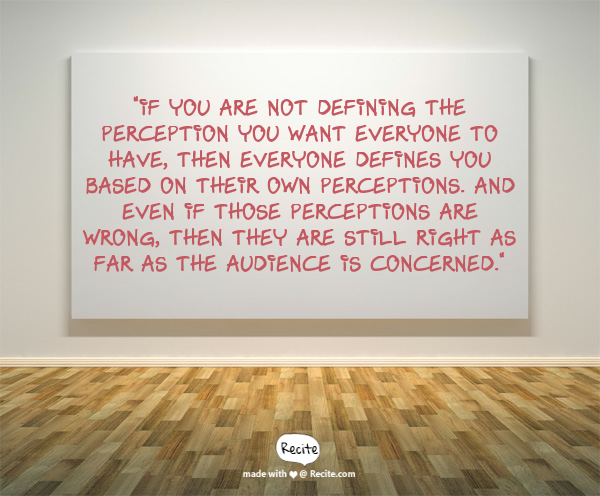Communication is key in creating comfortable workplaces
FDA Advisory Committee Preparation Tips
Know the law in communicating your key message.
Retaining public relations counsel - Hire a lawyer!
Protecting your reputation - Outside the courtroom
When public opinion matters more than a judge's opinion
A lawyer should also become Business Advisor
In today’s economy, lawyers need to provide their clients with more than just legal services. They can position clients to avoid litigation, minimize risk and protect their reputation, by blending law, policy, politics and strategic communications to provide clients an integrated approach to resolving or avoiding legal problems.
Equipping attorneys with the wherewithal to communicate with the public will provide law firms with new channels to cross-sell services and maintain core clients by expanding into new areas to complement a variety of practice groups. Crisis and media management represents not just an ancillary service that lawyers can provide their clients but also represents a critical component of a successful legal strategy.
In addition, companies today face increased challenges from regulatory and legislative authorities. And attorneys need to become more aware of how they can use the legislative and regulatory process to improve their client’s position.
But many lawyers are uncomfortable offering their clients counsel in approaching the media or talking with legislators. But when the damage is done publicly the legal outcome becomes irrelevant.
If lawyers are uncomfortable in stepping out of the box and expand their practice then they need to develop the relationships to wrap a team around their clients to proactively work together in the best interests of their clients.
Trial by media
When the stakes are high in litigation – use the media to win your case
In law, public opinion matters so turn those key messages into a winning litigation strategy -- Lawyers are prevented from using the media as a tool to influence a judge or jury. But litigation is a threat not only to a corporation’s bottom line but also to its reputation. Winning in the court of public opinion can often times be more important than winning legal battles. In approaching litigation of high profile cases, lawyers should look at the big picture and beyond the facts and case law in representing clients. Lawyers should counsel their clients to conduct a thorough assessment of the potential impact litigation will have on the company’s image, reputation, customer relations, investor relations and future business of that particular company.
Through a strategic and targeted communications plan, a company can protect its image, avoid any investor drop-off and continue to keep its customers. As a result, a comprehensive legal strategy should also include a strategic communications campaign (find legal word for campaign) that works on a parallel track to litigation. While lawyers are preparing for trial, your pr counsel can manage the public environment surrounding the legal action. A strategic communications campaign can also help avoid litigation in the first place and become a holistic approach to avoiding litigation. Through an on-going litigation strategy key stakeholders will have all the information they need to make informed decisions.
Quick tips:
- Set the tone immediately you get wind of something
- Conduct a vulnerability assessment
- Communicate with employees and other key figures
- Develop key messages and engage the media
- Line up supporters and maintain momentum
Preserving attorney-client privilege in retaining PR counsel
Work product generated from a public relations agency may or may not be protected under attorney-client privilege. Recently, a judge in New York (United States District Court for the Southern District of New York) ordered documents given to Calvin Klein's (CK) PR firm by CK's lawyers that contained information related to a lawsuit with a licensee.
The PR firm was retained to manage the media and manage the message during the litigation to protect the CK label from negative publicity surrounding the trademark litigation.
Despite this ruling, there are steps you can take to make sure you are protected. Steps such as:
- Have your legal counsel retain the firm
- Have communications from your PR counsel directed to your legal counsel
- Label all communications “Attorney-Client Privileged”
- Retain a media savvy lawyer to assist in the messaging in and out of court.
The sands have shifted in the practice of law
Gone are the days when clients were only concerned about the legal ramifications of a lawsuit or legal quagmire. Today, clients are often also concerned with how they are judged in the public eye and perceived by their customers, vendors and by their own families.
In protecting a client’s reputation, “an attorney’s duties do not begin inside the courtroom door -- he or she cannot ignore the practical implications of a legal proceeding for the client.”[i] An attorney should take reasonable steps to defend a client’s reputation.
This is particularly important in an environment where news is reported “24/7” and at times even delivered instantaneously to our cell phones. Likewise, with sales of newspapers and magazines at all-time lows, the media is hungry for a story even if no story really exists. Therefore, lawyers must be more diligent in looking at the big picture in protecting their clients’ interests in the court of law as well as in the court of public opinion.
[i] Gentile v State Bar of Nevada (Kennedy opinion), 510 US 1030, 1043 (1991).
When your reputation is on the line
High-profile litigation involves not just the defense of the legal claim but also the protection of the client’s public image. The normal orientation of defense counsel is toward protecting information from disclosure, but where a case has aroused public or media interest, a narrow focus on preventing disclosure can have broad negative effects outside the scope of the litigation itself. In cases of that type it is wise for defense counsel to retain public relations counsel to assist with the public relations aspects of the defense. Public relations counsel can coordinate public relations efforts with defense counsel in a way that helps to protect the client’s public reputation without jeopardizing the attorney client privilege.
Today’s legal strategies demand public relations
PR as part of the legal strategy - [Litigation Communications Part 4]
Today’s business environment demands an aggressive strategy to resolve issues legally while protecting one’s reputation publicly. As a result, lawyers need to be more than legal counselors or advocates. They need to be familiar enough with how perception is created within the public eye and how to use the media effectively to manage that perception. Therefore, the potential impact any litigation will have on a client’s image, reputation, investor relations and future business must be considered in creating a legal strategy.
To protect a client’s legal interests and also to preserve the client’s reputation publicly in a high-profile case, defense counsel should consider engaging public relations counsel early in the process, so as to develop a complementary strategy and get advice on how to deal with the media and protect the client’s public relations interests. In developing a broad defense strategy that embraces both legal and public relations concerns, lawyers need to look beyond the facts and include public relations concerns as a comprehensive defense. Public relations counsel can assist defense counsel by managing the public relations issues while defense counsel focuses on the traditional elements of mounting a defense. If both the legal and the public relations components are to succeed, it is essential that defense counsel and public relations counsel coordinate their efforts.
Retaining public relations counsel
[Part 2 - Litigation Communications]
The attorney-client privilege is generally preserved in retaining public relations counsel during the course of litigation. However, it helps when your public relations counsel also happens to be a licensed attorney. In fact, public relations seems to be a popular alternative career for attorneys. In any event, defense counsel should exercise care to ensure that any privilege is preserved. It also is preferable that the public relations firm be retained by and report to defense counsel rather than the client. This will help in mounting a coordinated defense and also help to preserve attorney-client privilege by ensuring that all communications pass through defense counsel.
Likewise, public relations counsel should include defense counsel in all stages of communication and consult closely with defense counsel in developing key messages to make sure it complements the legal strategy rather than puts it in jeopardy. Defense counsel should be present during any conferences involving public relations counsel and the client.
Given the stakes in today’s litigation environment, defense counsel may find it helpful to develop a relationship with a public relations firm, so that it can be ready to assist on short notice if and when it is needed. For example, some public relations firms are known for their expertise in crisis and reputation management while others focus more on soft promotions and publicist work. Some public relations firms focus specifically on litigation communications practice, and even have attorneys and registered lobbyists on staff.
Many of the larger law firms have a chief marketing officer that they can rely upon for initial help or guidance, while others have already retained a public relations firm to assist with matters that are beyond the routine. In any event, defense counsel should look for a public relations firm that has relationships with the media, both local and national, on-line, in-print and on-the-air.
In preparing for litigation or creating a legal strategy to meet a clients objectives attorneys must consider the impact on their client’s businesses and reputations. Reputations take years to create and only seconds to destroy. Engaging public relations counsel early can create a comprehensive strategy that will help clients – and defense counsel -- succeed.








